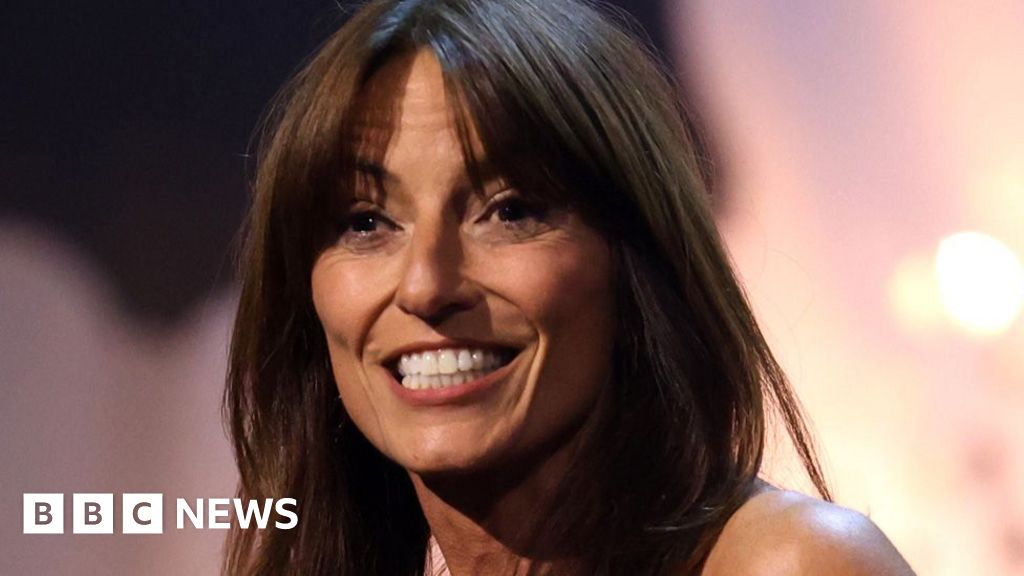ARTICLE AD BOX
By Ian Youngs
Entertainment & arts reporter
Image source, Getty Images
Image caption,The Book of Mormon in the West End has brought down the shutters from 18 to 27 December
Rampant Omicron infections, new restrictions and falling audiences have led to many live theatre and music performances being cancelled - with uncertainty hanging over the rest.
That has caused a fresh crisis for performers and backstage workers who were only just getting back on their feet after the arts and entertainment industry was shut down for long periods over the past two years.
Here, three explain the impact the latest wave has had on them.
'I have no money coming in in January'
Image source, Kirstin McEwan
"Truthfully, I'm exhausted," says Emma Jayne Park, a dancer, theatre maker and movement director.
"It's the first time in 15 years of being in the industry that I'm genuinely considering leaving. Possibly not forever, but for a chunk of time.
"I love this thing so much that it upsets me, the notion of having to leave. But I'm not sure my physical or mental health can continue with this level of uncertainty and a [government] response that isn't informed by what's being said."
Park, based in Dumfries and Galloway, Scotland, has had her January plans - making a new work with students doing a performance module - postponed until May.
The college suggested continuing to work in person, but Park's chronic illness made that a problem. "I have fibromyalgia and I have a weak immune system, so I'm on the cusp of the shielding community," she says.
"So actually, for me, that becomes a form of discrimination in some ways because the offer was do it in person or don't do it.
"Then they said, we'll move it to May. That means I still don't have an income for January, and the work I have lined up for May... I have to choose between two pieces of work. So somewhere along the line, I lose a month's income."
Disabled artists and others are at risk of being excluded from working in the arts again, she says, while many fellow freelancers have already left.
"I'm thinking, I have no money coming in in January, what do I do? It's not as if it's been a period of being able to save loads in the past two years."
However, she praised the Scottish government's announcement on Wednesday of an £8m fund for freelancers to claim between £500 and £2,000 for work that has been cancelled.
"Hopefully I'll be eligible for that in January and that will give me a financial bit of breathing space," she says.
"It's really intelligent. And it shows Creative Scotland has been listening, whereas I don't believe the Westminster government has been listening and understand what the industry is."
'It's put a big strain on Christmas'
Image source, Charlie Forrest
Bassist and bandleader Phill Court, based in south Wales, was supposed to be playing in a band for a pantomime this month, but that work has bitten the dust. A New Year's Eve concert and other January gigs have met the same fate.
"It's not ruined Christmas completely, but it's definitely put a very big strain on Christmas time for myself and my family," he says.
"I'm £2,000 down on what I would have had, so I've either got to find work elsewhere or try to find some extra work in my industry, which is very difficult at this time."
New regulations in Wales strictly limiting capacities and reintroducing social distancing, which make large events like concerts impossible, were "a shock", Court says. The Welsh government has offered £500 to freelance workers.
Prospects for the start of 2022 are "not looking hopeful", he says. "It's quite a depressing thought really. My work in my sector has just disappeared now, going into the New Year.
"Depending on extra restrictions after Christmas, or whether they're reversed or more are added, it's a very worrying time."
It all comes after previous lockdowns that "completely decimated my career for a certain amount of time", he says.
"From August this year, things were getting better and looking really good. I was doing shows all over the UK with various acts.
"But now that we've been shut back down, we're back to square one, unfortunately."
'I'm extremely stressed for what's to come'
"There was a feeling of euphoria," says lighting and electrical technician Tom Fitch about the reopening of theatres this summer.
"It was amazing to be reopening shows and seeing all the people we haven't seen for however long and being open for audiences and just being here again.
"Now there's that dreaded feeling of, 'What is to come, what is going to happen?', I know for a fact my mental health will take a massive plunge. I'm already extremely stressed for what's to come."
Fitch currently is working on The Book of Mormon musical in London's West End, which was forced to cancel all performances between 18-27 December because of infections among the cast and crew.
"We're getting a lot of hate from audience members when we close," he says. "The decision is not easily made. Our Covid procedure is unbelievably strong.
"We're testing every day - we're doing daily tests at home and then also being tested by a nurse twice a week. We're wearing masks everywhere in the building. It's not like we're being a bit lacklustre and that's why we're all testing positive. We're all doing everything in our power to stay open."
But Fitch himself was among those who caught Covid last week. "I was getting texts daily saying, this person's got it, this person's got it."
He isolated for 10 days - during which time he was on full pay, although he lost extra freelance work.
"But if the closures go on for longer, there is a very high chance that my position won't exist," he says. "There's a chance I may be laid off for a period or completely.
"That's the same with many people. It's not just my company. I was made redundant at the start of the pandemic as well, and that had a major financial loss for me."
Trying to look on the bright side, though, he hopes the current high rates mean Omicron will sweep through quickly, so theatres will not be empty for long.

 2 years ago
97
2 years ago
97








 English (US)
English (US)